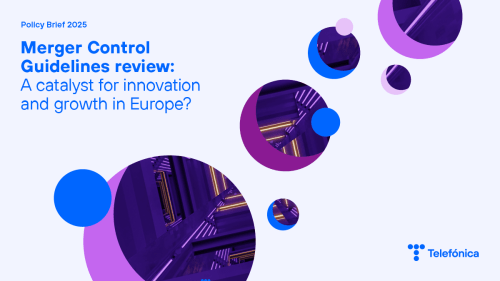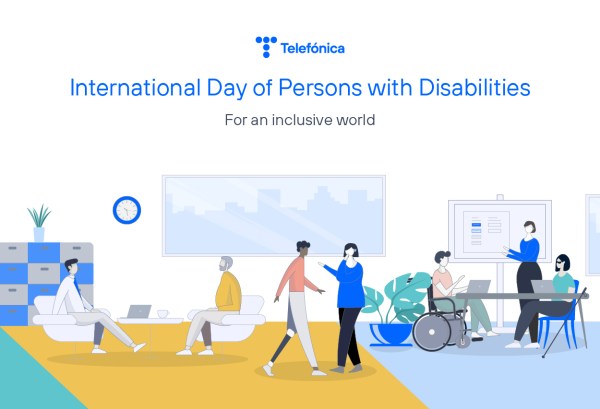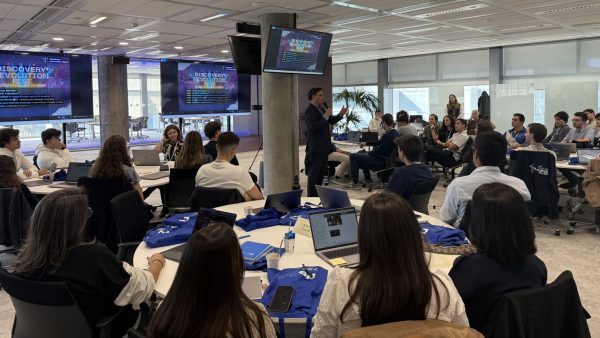However, there is a misconception that talent is only associated with youth and that more experienced professionals are relegated to a less relevant second place. In this article, I share my point of view on how talent transcends age. Taking the case of Telefónica as a practical example, I analyse different strategies and modalities that allow for an inclusive perspective that appreciates and respects each phase of both professional and personal growth.
Energy and wisdom in the generational balance
Talent in the workplace should not be evaluated or limited by age, but rather based on each person’s individual skills, as well as their experience and ability to adapt to the work environment. The debate on talent often focuses exclusively on youth, highlighting the energy and freshness that young people bring with them. While it is true that young people can offer an innovative perspective together with creativity and a willingness to take risks in a natural way, these attributes are not exclusive to a single generation. Positive energy and creativity are valuable attributes that can be observed in workers of any age if they are given opportunities to appreciate them and combine them with their wealth of acquired experience.
It is essential that companies promote an inclusive culture that values the contributions of all their employees regardless of age. Young people can bring new ideas and fresh, dynamic points of view, while more experienced employees bring with them a deep knowledge of the sector and a strategic understanding developed over the years. This combination of vitality and experience is what allows organisations to be both innovative and efficient.
Therefore, an inclusive approach to talent is essential to form balanced teams where the creativity of young people and the experience of more experienced employees complement each other. This balance is crucial not only to maintain the company’s relevance in a constantly changing market but also to promote an environment of continuous learning. Older professionals are often excellent mentors and, in addition to their vast experience, they can guide and support the development of younger people and strengthen the organisational culture by passing on knowledge. Companies that appreciate this interaction between generations are more likely to face complex challenges effectively, encourage creativity and ensure long-term success.
How to retain talent from different generations
Including people of different ages in a group is a procedure that requires attention and meticulous planning. Telefonica has implemented tactics aimed at utilising the skills of all ages such as Be Talent, Campus 42, Senior and Junior Talent, among others. Inspired by these initiatives, I share some suggestions that companies can follow to attract and retain a diverse workforce:
Mentoring programmes
The implementation of mentoring programmes in companies enables more experienced employees to guide and accompany younger employees in their professional growth within the workplace and help them adapt to the work environment and overcome challenges specific to the sector in which they each work. However, this situation should be reciprocal given that not only do the more senior workers provide teaching, but they also have the opportunity to learn new things from the young employees who contribute fresh perspectives and innovative ideas together with modern technologies to the veteran work team. This type of two-way mentoring promotes an environment of collaboration and reciprocal learning that contributes to establishing an organisational culture based on the constant sharing of knowledge. In addition, this practice strengthens relationships within the team and increases the sense of belonging among employees, thus fostering an inclusive and collaborative work environment.
Inclusive hiring policies
It is essential that companies establish recruitment policies that promote diversity and inclusion to ensure that all applicants are evaluated based on their unique skills and abilities regardless of their age. These policies could involve eliminating unconscious bias in the selection process and forming diverse recruitment teams that recognise the past experiences and skills acquired by candidates. In addition to this, measures could be put in place to encourage companies to seek a balance between generations in their teams, recognising that age diversity can be an important factor in fostering innovation and creativity in the workplace. Through these inclusive policies, organisations can build more balanced teams that reflect a variety of perspectives and experiences, resulting in stronger decision-making and increased competitiveness.
Flexibility and Harmony
In a workplace with a diverse age range of employees, it is essential to have flexible working arrangements in order to attract and retain talent from all the generations present in the company. More and more companies are implementing flexible working policies that include adaptable schedules or the possibility of working from home. This becomes an excellent way to help workers find a balance between their personal and professional lives. Flexibility is beneficial both for young people who appreciate being able to manage their time according to their needs and for older professionals who may have additional family or personal responsibilities. By offering these alternatives, companies also send a clear message of their appreciation for the quality of work and the well-being of their employees, regardless of their age.
Promoting diversity
Recognising and valuing the contributions of people of all ages is not only achieved through the implementation of internal policies, it is also important to organise intergenerational events that foster collaboration between different age groups. These events can range from creative workshops and joint projects to motivational talks or even social activities that allow employees to share their knowledge and experiences in a more relaxed environment. These meetings give employees the opportunity to interact with each other and learn together in a collaborative way on common projects. Likewise, by fostering an organisational culture that celebrates differences and values the unique perspectives of each generation, companies can create an environment where everyone feels valued and respected, which motivates them to contribute to the maximum of their abilities. Actively promoting generational diversity can be critical to fostering more innovative and creative teams, which will increase the company’s ability to adjust to rapid change and face the challenges ahead.







